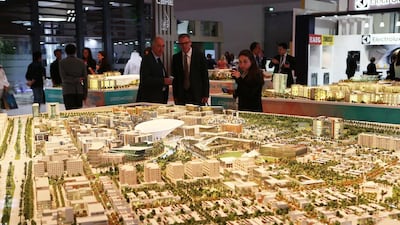As investors and estate agents visit Cityscape Global this week, they will find a property market that has had its exuberance calmed by government policies. This slowing of demand is the result of a deliberate strategy introduced following a 2014 IMF warning that Dubai’s housing market was overheating.
Since then, the Central Bank has introduced a series of caps to the amount of loan to value that consumers can take on to fund property purchases. More important has been the doubling of the transaction tax on sales. This hits the appeal of flipping, a proximate cause of the 2008 financial crisis. Buying to resell in a few months’ time is much less attractive if you’ll be hit with a 4 per cent charge each time you trade land titles.
Another big impact comes from the strengthening dollar. As the price of Dubai property rises in foreign currency terms, selling makes more sense than buying. Property owners see sales earnings go further in their home countries, while foreign buyers want to wait until the dollar falls again before jumping into the market.
The cooling of Dubai’s property market is a welcome development. It reduces the susceptibility of the emirate to sudden capital outflows, like those of 2008. Lower rents in Dubai will be welcomed by tenants, while rent yields are making buy-to-let purchases more attractive. The long-term prognosis is for moderate, positive price growth: Expo 2020, which will swell demand for housing in Dubai, should support prices over the next few years.
But market trends disguise sub-market frictions. A shortage of affordable housing continues to make life tricky for low- and middle-income residents. Much of the upcoming Dubai housing stock caters to wealthy buyers, while rents in cheaper areas have risen fastest of all. That eats into the standard of living of those on low incomes. Rents in Abu Dhabi, where the housing stock is growing more slowly than the population, are set to rise further. Developers must ensure that the country has enough housing available across the income spectrum as a lack of cheap homes could hurt the UAE’s ability to attract workers – there were signs yesterday at Cityscape that this is beginning to happen, but more needs to be done.

